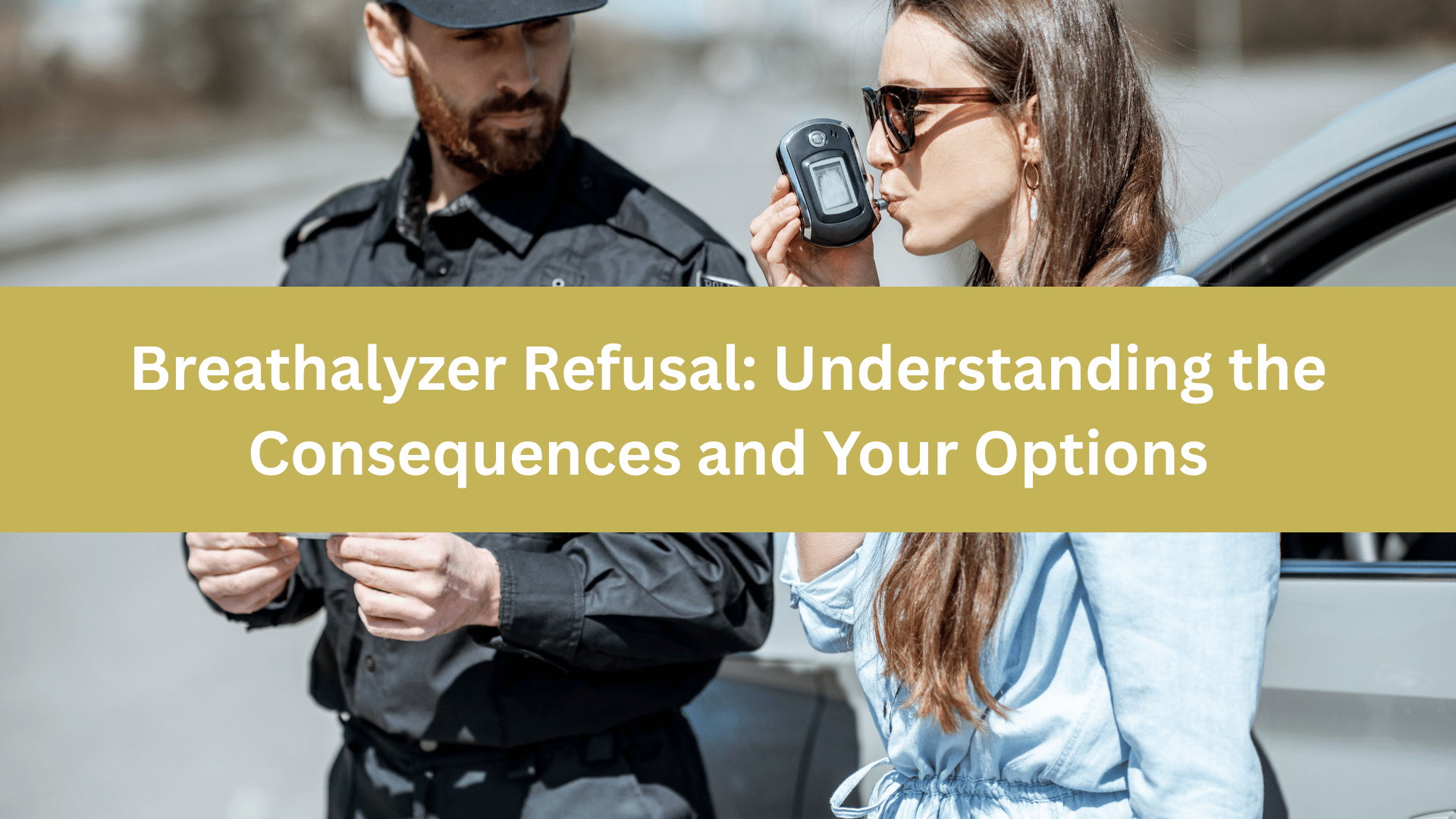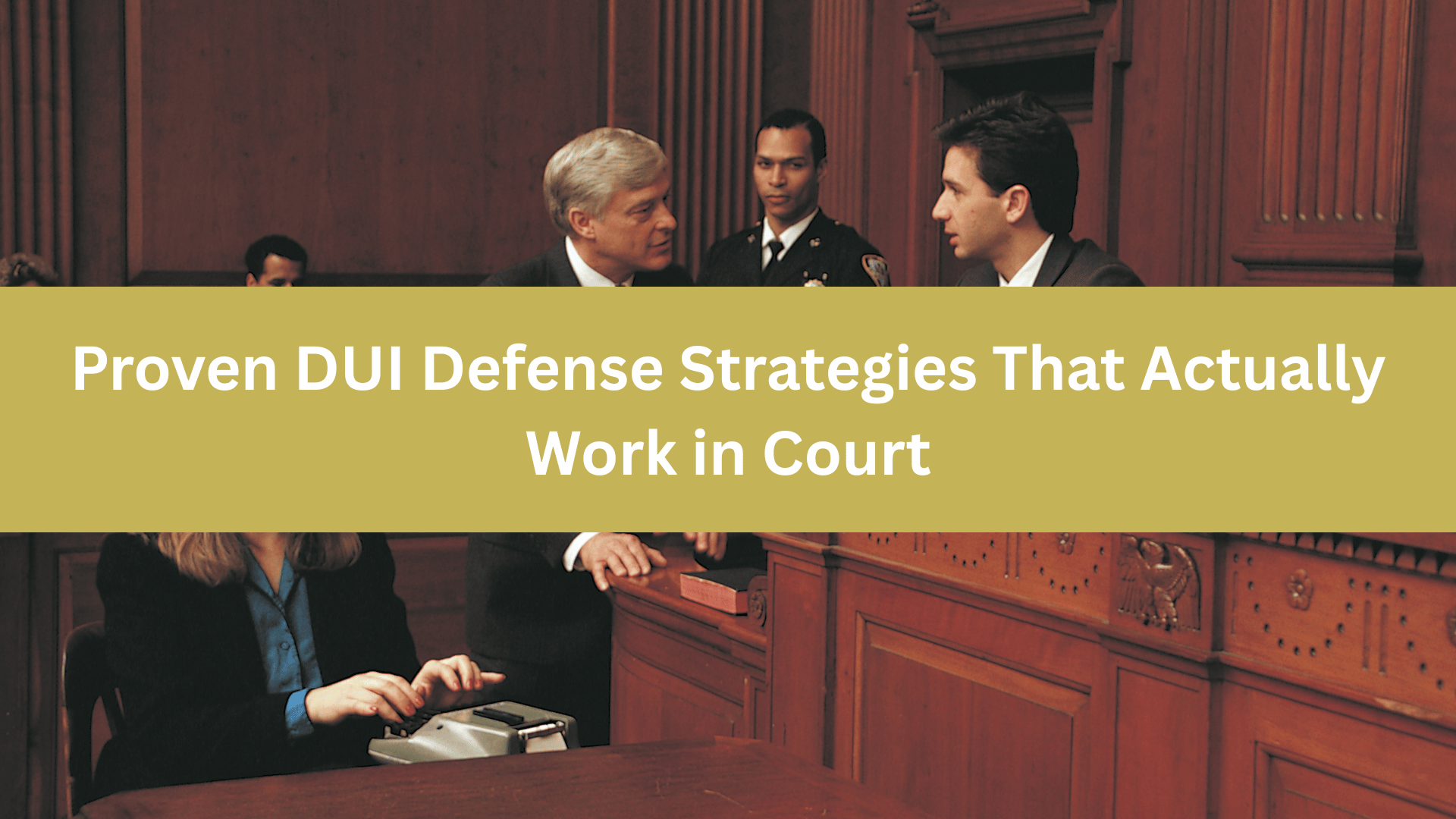Breathalyzer Refusal: Understanding the Consequences and Your Options
Comprehensive analysis of breathalyzer refusal in California. Learn about implied consent laws, penalties for refusal, and strategic considerations from former prosecutors.

Breathalyzer Refusal: Understanding the Consequences and Your Options
The decision to refuse a breathalyzer test during a DUI investigation is complex and has significant legal consequences. As former prosecutors, we've handled hundreds of refusal cases and understand both the immediate and long-term implications of this choice. This comprehensive guide will help you understand the law, consequences, and strategic considerations.
Understanding California's Implied Consent Law
What is Implied Consent?
California Vehicle Code Section 23612 establishes that by driving on California roads, you give "implied consent" to chemical testing if lawfully arrested for DUI. This means you've already agreed to testing simply by obtaining a driver's license and driving.
Key Points:
- Consent is "implied" by the act of driving
- Applies only after lawful arrest
- Covers breath, blood, and urine testing
- Refusal triggers automatic penalties
Pre-Arrest vs. Post-Arrest Testing
Pre-Arrest Testing (PAS - Preliminary Alcohol Screening):
- Generally voluntary for drivers over 21
- Not subject to implied consent law
- Can be refused without refusal penalties
- Exception: Drivers under 21 or on DUI probation
Post-Arrest Testing:
- Mandatory under implied consent law
- Refusal triggers automatic consequences
- Officer must give proper admonishment
- Choice of breath or blood test (usually)
The distinction between pre-arrest and post-arrest testing is crucial. Pre-arrest PAS tests are usually voluntary, while post-arrest chemical tests are mandatory under implied consent.
Consequences of Breathalyzer Refusal
Immediate DMV Consequences
Administrative License Suspension:
- First refusal: 1-year license suspension
- Second refusal within 10 years: 2-year revocation
- Third refusal within 10 years: 3-year revocation
- Effective immediately upon arrest
No Restricted License Available:
- Unlike DUI convictions, refusal suspensions typically don't allow restricted licenses
- No driving to work, school, or DUI programs
- Complete driving prohibition during suspension period
Criminal Court Consequences
Enhanced Penalties:
- Refusal can be used as evidence of consciousness of guilt
- Additional jail time may be imposed
- Longer probation periods
- Higher fines and fees
Specific Enhancements:
- First DUI + Refusal: Additional 48 hours jail minimum
- Second DUI + Refusal: Additional 96 hours jail minimum
- Felony DUI + Refusal: Significant sentence enhancements
Long-Term Consequences
Insurance Impact:
- Higher insurance premiums
- Possible policy cancellation
- SR-22 filing requirements
- Long-term rate increases
Professional Consequences:
- Professional license implications
- Employment background checks
- Security clearance issues
- Commercial driving restrictions
Strategic Analysis: To Refuse or Not to Refuse?
Factors Favoring Refusal
High BAC Situations:
- If you believe your BAC is significantly over 0.08%
- Multiple drinks consumed recently
- Large person who consumed substantial alcohol
- Recent drinking with rising BAC
Prior DUI History:
- Previous DUI convictions increase penalties
- Refusal may prevent worst-case scenario
- Probation violations have severe consequences
Weak Case Without Chemical Evidence:
- Poor field sobriety test performance
- Strong driving pattern evidence
- Admissions to drinking
- Physical symptoms of intoxication
Factors Against Refusal
Borderline BAC Cases:
- Only 1-2 drinks consumed
- Drinking occurred hours before driving
- Large meal consumed with alcohol
- Medications affecting field sobriety tests
First-Time Offenders:
- Better plea bargaining options with low BAC
- Restricted license available with DUI conviction
- Shorter license suspension periods
- Less severe long-term consequences
Professional Drivers:
- CDL holders face career-ending consequences
- Commercial driving requires clean record
- Employment depends on driving ability
The decision to refuse testing should be made carefully considering all circumstances. There is no universally correct answer - each situation requires individual analysis.
The Refusal Admonishment
Required Warnings
Officers must provide specific warnings before requesting chemical testing:
Standard Admonishment:
- You are required to submit to chemical testing
- Refusal will result in license suspension/revocation
- Refusal can be used against you in court
- You have choice of breath or blood test (usually)
Inadequate Admonishment Defenses
Common Deficiencies:
- Incomplete warnings given
- Confusing or contradictory statements
- Failure to explain consequences clearly
- Coercive language used
Legal Challenges:
- Inadequate admonishment can invalidate refusal
- Burden on prosecution to prove proper warnings
- Video evidence often crucial
- Officer testimony can be challenged
Challenging Refusal Cases
Constitutional Challenges
Fourth Amendment Issues:
- Unlawful arrest invalidates implied consent
- Lack of probable cause for arrest
- Improper detention procedures
- Coercive circumstances
Due Process Violations:
- Denial of right to counsel
- Failure to provide required warnings
- Coercive interrogation techniques
- Medical emergency exceptions
Factual Challenges
Questioning the Refusal:
- Ambiguous responses to testing request
- Medical inability to provide sample
- Language barriers or confusion
- Mental impairment affecting understanding
Alternative Explanations:
- Medical conditions preventing testing
- Panic attacks or anxiety disorders
- Physical inability to blow adequately
- Misunderstanding of requirements
DMV Hearing Strategy for Refusal Cases
The 10-Day Rule
Critical Deadline:
- Must request hearing within 10 days of arrest
- Failure to request = automatic suspension
- No exceptions for late requests
- Attorney can request on your behalf
DMV Hearing Issues
Limited Scope:
- Did officer have reasonable cause to believe DUI?
- Was arrest lawful?
- Was proper admonishment given?
- Did driver refuse testing?
Evidence Presentation:
- Officer testimony and reports
- Video evidence if available
- Medical records if relevant
- Expert testimony on procedures
Winning DMV Hearings
Successful Strategies:
- Challenge probable cause for arrest
- Attack adequacy of admonishment
- Present medical evidence for inability
- Demonstrate procedural violations
Common Victories:
- Unlawful arrest findings
- Inadequate admonishment rulings
- Medical necessity exceptions
- Procedural error discoveries
Blood Test Refusal vs. Breath Test Refusal
Choosing Between Tests
Breath Test Considerations:
- Immediate results available
- Less invasive procedure
- More challenging for defense
- Officer training issues possible
Blood Test Considerations:
- More accurate but delayed results
- Invasive medical procedure
- Chain of custody issues
- Laboratory error possibilities
Refusal After Choosing
Breath Test Refusal:
- After choosing breath, refusal to blow adequately
- Medical conditions affecting ability
- Panic or anxiety preventing cooperation
- Equipment malfunction issues
Blood Test Refusal:
- Refusal to submit to blood draw
- Medical conditions preventing blood draw
- Religious objections (limited protection)
- Needle phobia considerations
Medical Exceptions to Refusal
Legitimate Medical Conditions
Physical Conditions:
- Severe asthma or breathing disorders
- Recent surgery affecting breathing
- Mouth or throat injuries
- Dental work preventing adequate seal
Mental Health Conditions:
- Severe anxiety or panic disorders
- PTSD triggered by procedures
- Claustrophobia affecting testing
- Cognitive impairments
Documenting Medical Exceptions
Evidence Required:
- Medical records and history
- Physician statements
- Emergency room records
- Prescription medication records
Timing Considerations:
- Pre-existing conditions vs. convenient claims
- Medical documentation dates
- Treatment history consistency
- Expert medical testimony
Negotiating Refusal Cases
Prosecution Perspective
Strengths of Refusal Cases:
- Consciousness of guilt evidence
- No BAC evidence to challenge
- Enhanced penalties available
- Strong deterrent effect
Weaknesses of Refusal Cases:
- No scientific evidence of impairment level
- Reliance on officer observations only
- Potential constitutional challenges
- Jury sympathy for harsh penalties
Defense Negotiation Strategies
Leveraging Case Weaknesses:
- Challenge arrest justification
- Attack field sobriety test reliability
- Present alternative explanations
- Highlight procedural errors
Plea Bargaining Options:
- Wet reckless with refusal allegation dismissed
- Standard DUI with refusal enhancement removed
- Dry reckless in exceptional cases
- Alternative sentencing arrangements
The Role of Expert Witnesses
Types of Experts
DUI Experts:
- Former law enforcement officers
- Toxicology specialists
- Field sobriety test instructors
- Breath testing device experts
Medical Experts:
- Pulmonologists for breathing issues
- Psychiatrists for mental health conditions
- Emergency physicians for medical conditions
- Pharmacologists for medication effects
Expert Testimony Strategy
Challenging Procedures:
- Proper admonishment requirements
- Constitutional compliance issues
- Medical necessity exceptions
- Alternative explanation presentation
Recent Legal Developments
Evolving Case Law
Recent Decisions:
- Enhanced constitutional protections
- Medical exception expansions
- Admonishment requirement clarifications
- Penalty proportionality challenges
Legislative Changes:
- IID requirements for refusal cases
- Enhanced penalties for repeat refusals
- Medical exception procedures
- DMV hearing process modifications
Building a Comprehensive Defense
Multi-Faceted Approach
Constitutional Challenges:
- Fourth Amendment violations
- Due process issues
- Right to counsel violations
- Coercive circumstances
Factual Challenges:
- Ambiguous refusal claims
- Medical inability evidence
- Procedural error documentation
- Alternative explanation development
Strategic Considerations:
- DMV hearing coordination
- Criminal case integration
- Plea negotiation timing
- Trial preparation decisions
Case Investigation
Evidence Gathering:
- Police reports and videos
- Medical records and history
- Witness statements
- Expert consultation
Timeline Development:
- Drinking pattern analysis
- Medical condition documentation
- Arrest procedure review
- Testing request circumstances
Conclusion
Breathalyzer refusal cases present unique challenges and opportunities in DUI defense. While refusal carries serious consequences, it also eliminates the prosecution's strongest evidence - a BAC reading. The key is understanding when refusal makes strategic sense and how to defend the case effectively afterward.
As former prosecutors, we understand how refusal cases are built and prosecuted. We also know their weaknesses and how to exploit them for our clients' benefit. Every refusal case is different, requiring careful analysis of the specific facts, circumstances, and client needs.
The decision to refuse testing is personal and should be made with full understanding of the consequences. However, if you've already refused testing, experienced legal representation can often minimize the consequences and protect your future.
Don't let a refusal charge destroy your driving privileges and future opportunities. Contact our experienced team today to learn how our former prosecutor insight can benefit your defense. Time is critical - the 10-day DMV deadline and other time-sensitive issues require immediate action.
With proper representation and strategic defense, even refusal cases can be successfully resolved. Your future is worth fighting for - let us help you protect it.
Need Legal Help with Your San Jose DUI Case?
Our experienced San Jose DUI attorneys are here to help. Contact us for a free consultation.
